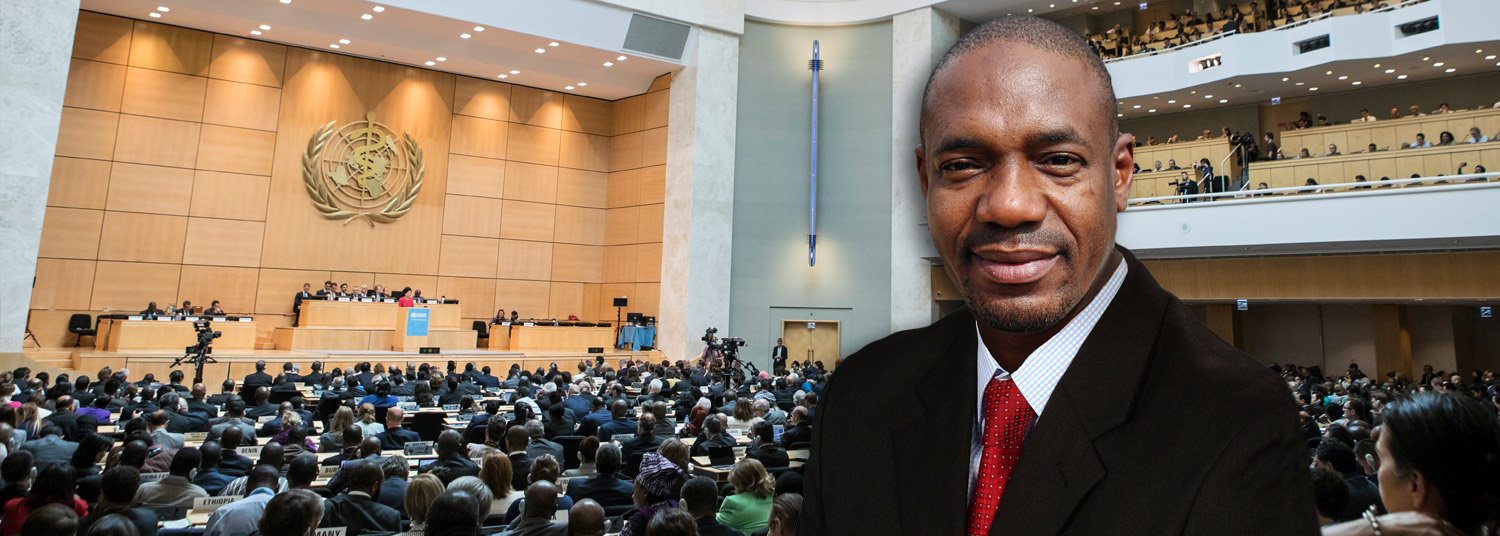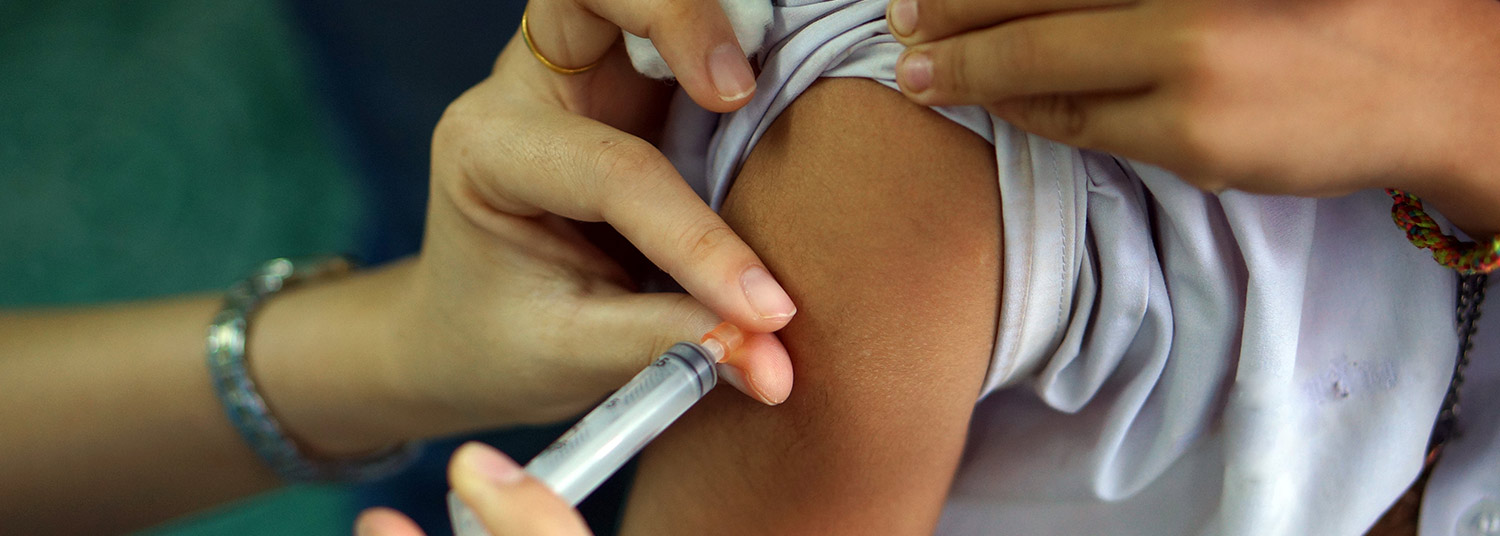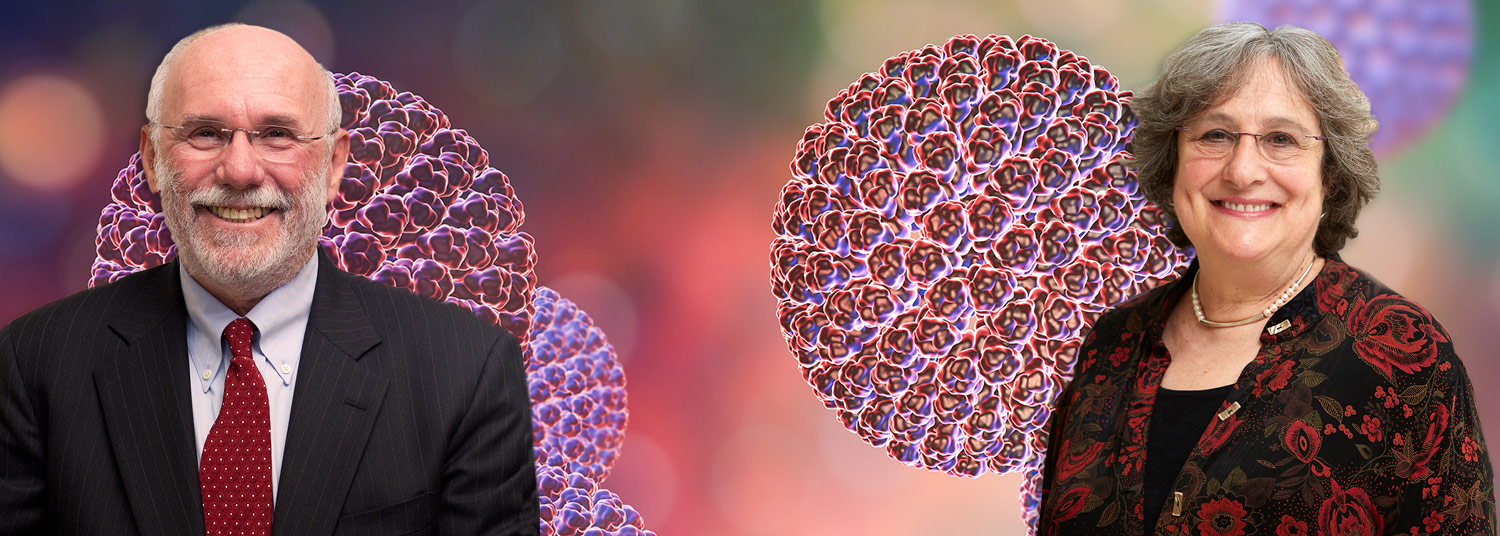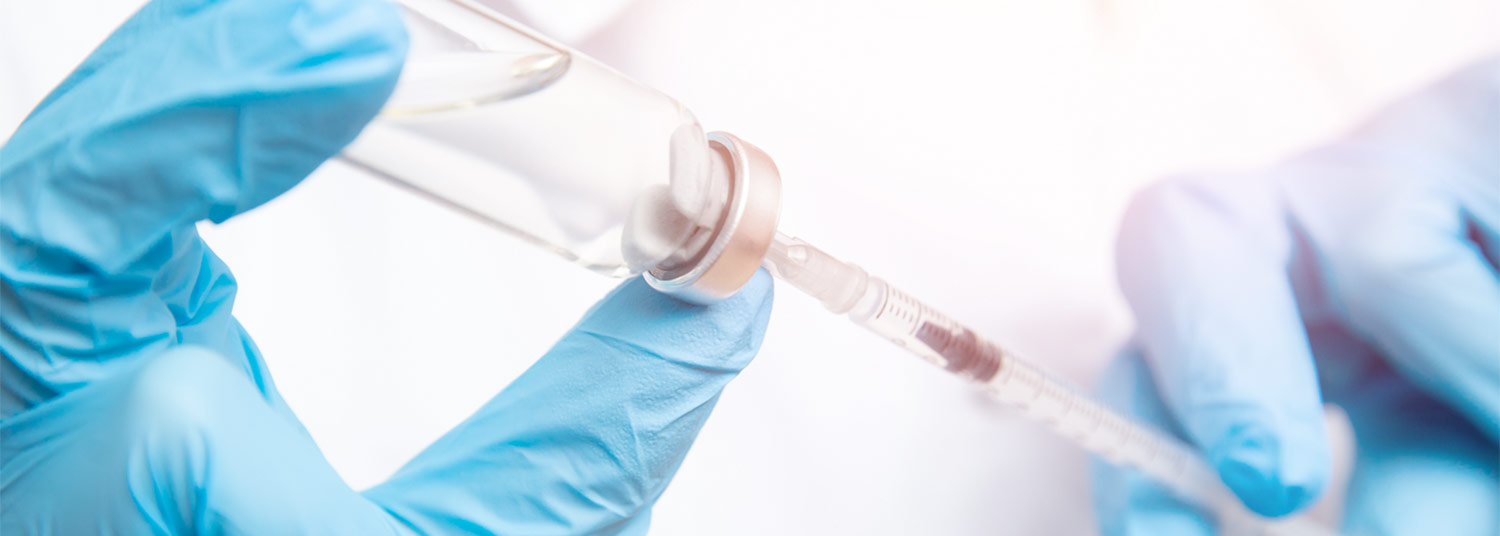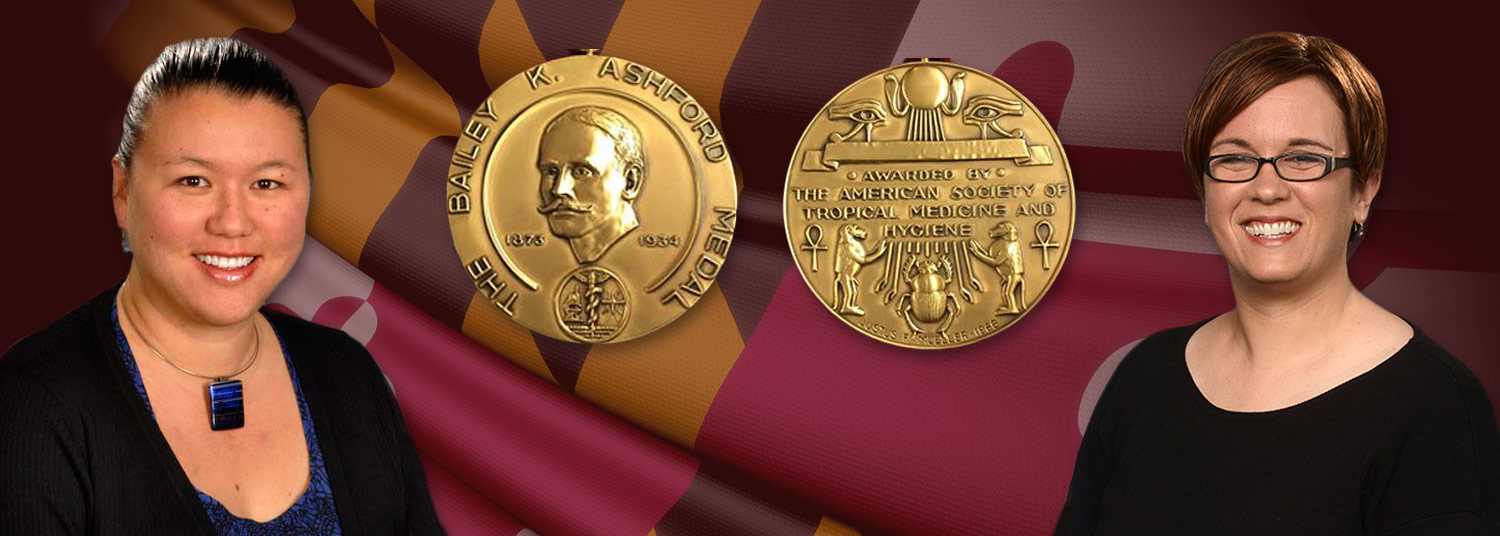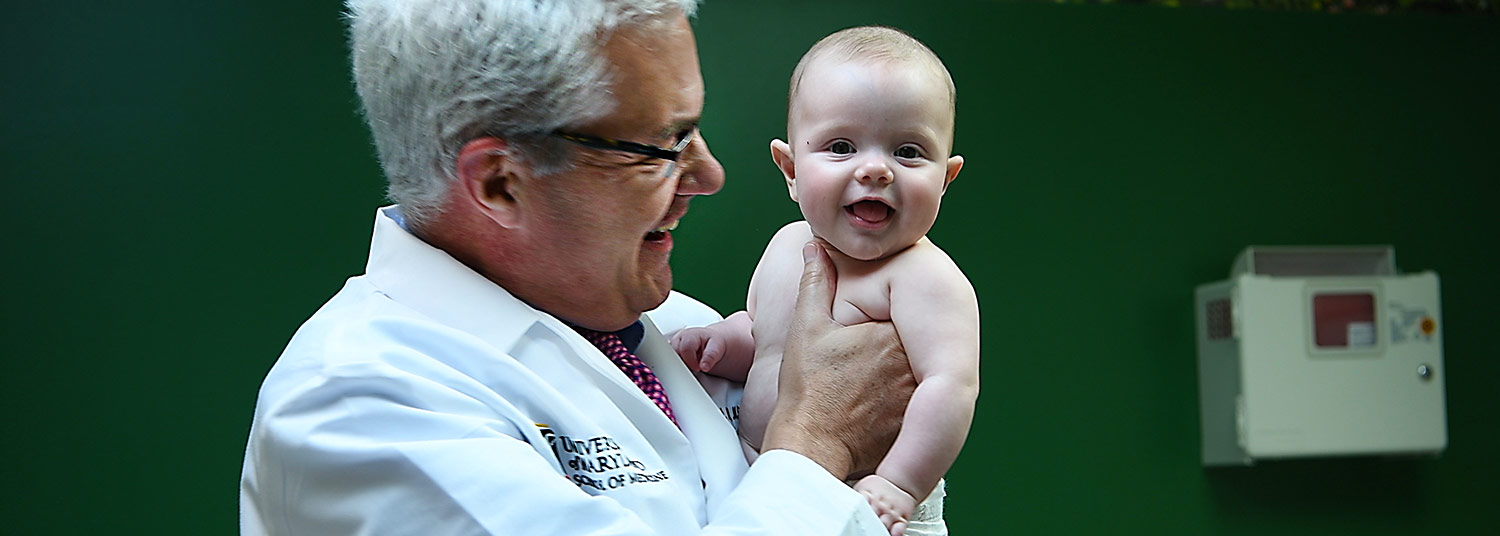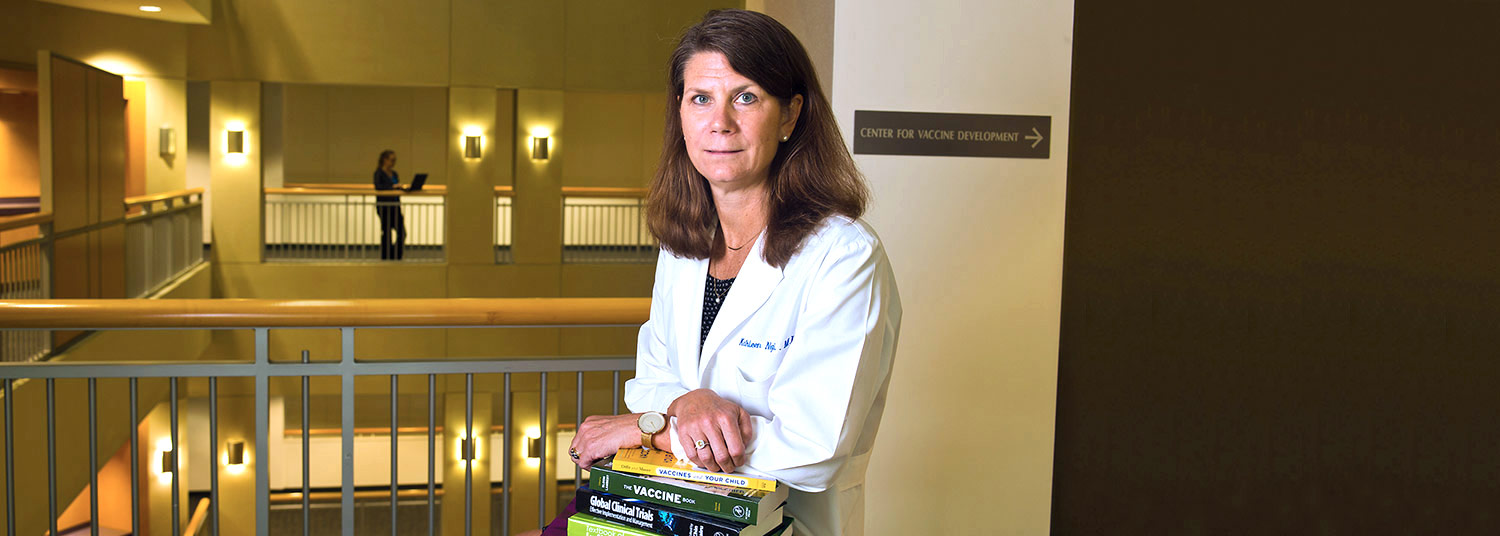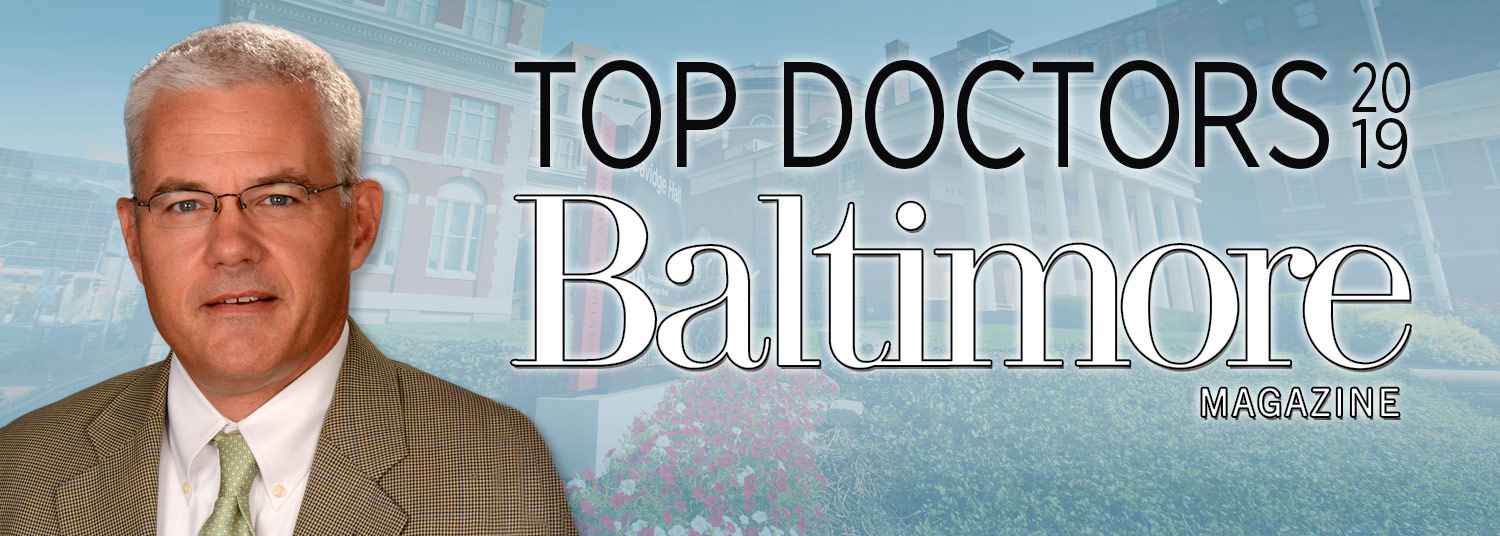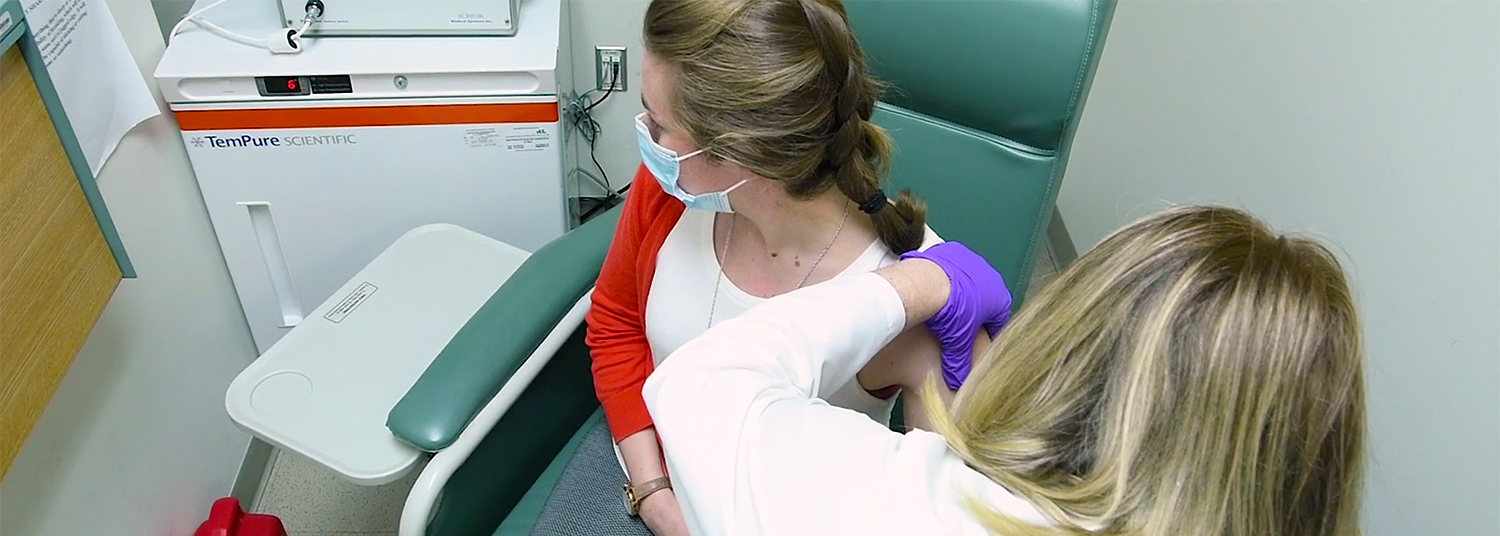May 05, 2020 | Joanne Morrison
Researchers will Test COVID-19 RNA-Based Vaccine Candidates Developed by Pfizer and BioNTech
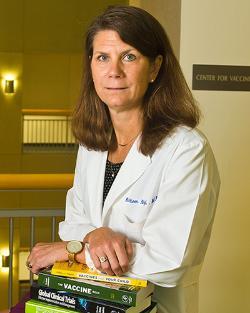 In a significant development in the global effort to discover a safe and effective vaccine for COVID-19, researchers at the University of Maryland School of Medicine (UMSOM) became the first in the U.S. to begin testing experimental COVID-19 vaccine candidates developed by Pfizer and BioNTech. The research, funded by Pfizer Inc., will study the safety, efficacy, and dosing of an experimental mRNA -based vaccine.
In a significant development in the global effort to discover a safe and effective vaccine for COVID-19, researchers at the University of Maryland School of Medicine (UMSOM) became the first in the U.S. to begin testing experimental COVID-19 vaccine candidates developed by Pfizer and BioNTech. The research, funded by Pfizer Inc., will study the safety, efficacy, and dosing of an experimental mRNA -based vaccine.
At present, there are no licensed vaccines or therapies for COVID-19, a serious respiratory disease detected in December 2019 in the Wuhan, Hubei Province, in China that has now spread across the globe as a pandemic resulting in some 70,000 deaths in the U.S. alone.
The vaccine research is being conducted in the UMSOM Center for Vaccine Development and Global Health (CVD), and it is part of a multicenter study in the U.S. and in Germany that will include up to 360 participants in this initial stage. In Baltimore, the clinical trial includes up to 90 healthy adult participants, between 18 and 85 years of age.
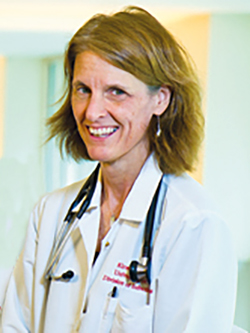 “We are excited to begin testing these vaccine candidates against COVID-19. The research is on a fast track given the extreme consequences of this pandemic and the critical need for preventive measures,” said Kathleen Neuzil, MD MPH, the Myron, M. Levine, MD, DTPH, Professor in Vaccinology, Professor of Medicine and Pediatrics, and Director of the CVD. Dr. Neuzil and Kirsten Lyke, MD, Professor of Medicine, are the investigators for the vaccine trial, which is now recruiting and screening for participants. The first participant was vaccinated on May 4.
“We are excited to begin testing these vaccine candidates against COVID-19. The research is on a fast track given the extreme consequences of this pandemic and the critical need for preventive measures,” said Kathleen Neuzil, MD MPH, the Myron, M. Levine, MD, DTPH, Professor in Vaccinology, Professor of Medicine and Pediatrics, and Director of the CVD. Dr. Neuzil and Kirsten Lyke, MD, Professor of Medicine, are the investigators for the vaccine trial, which is now recruiting and screening for participants. The first participant was vaccinated on May 4.
This so-called BNT162 program is a collection of at least four experimental vaccines, each of which represent a different combination of mRNA formats and target antigens. -- mRNA – or messenger RNA – is a long molecule, composed of nucleotides linked in a unique order to convey genetic instructions about how to make proteins. Once mRNA in a vaccine is inside of the body’s cells, it directs the cells to produce protein antigens, which stimulate the immune system of the vaccinated individual, generating immune response to the vaccine antigen. It differs from a traditional vaccine because it is does not inject a virus protein into body.
 The participants will receive two injections a month apart. The first group to be vaccinated will include healthy adults aged 18 to 55, and the next group will include volunteers aged 65 to 85 years of age. The researchers will investigate different dosages and types of the vaccine candidates to learn which one is best tolerated and produces the strongest immune response.
The participants will receive two injections a month apart. The first group to be vaccinated will include healthy adults aged 18 to 55, and the next group will include volunteers aged 65 to 85 years of age. The researchers will investigate different dosages and types of the vaccine candidates to learn which one is best tolerated and produces the strongest immune response.
“A vaccine is urgently needed for COVID-19. Our infectious disease experts and our vaccine experts at the University of Maryland School of Medicine have decades of experience in developing and testing protections from the leading infectious and emerging diseases. This research is an essential first step in protecting populations around the world from this serious illness,” said Dean E. Albert Reece, MD, PhD, MBA, who is also Executive Vice President for Medical Affairs, UM Baltimore, and the John Z. and Akiko K. Bowers Distinguished Professor, University of Maryland School of Medicine.
For individuals interested in participating in this important vaccine trial:
Call 1 (410) 706-6156, text COVID19Vaccine to #555888, email clintrial@som.umaryland.edu, or visit:
https://www.medschool.umaryland.edu/cvd/trials/Experimental-COVID-19-Vaccine/
About the University of Maryland School of Medicine
Now in its third century, the University of Maryland School of Medicine was chartered in 1807 as the first public medical school in the United States. It continues today as one of the fastest growing, top-tier biomedical research enterprises in the world -- with 45 academic departments, centers, institutes, and programs; and a faculty of more than 3,000 physicians, scientists, and allied health professionals, including members of the National Academy of Medicine and the National Academy of Sciences, and a distinguished two-time winner of the Albert E. Lasker Award in Medical Research. With an operating budget of more than $1.2 billion, the School of Medicine works closely in partnership with the University of Maryland Medical Center and Medical System to provide research-intensive, academic and clinically based care for nearly 2 million patients each year. The School of Medicine has more than $540 million in extramural funding, with most of its academic departments highly ranked among all medical schools in the nation in research funding. As one of the seven professional schools that make up the University of Maryland, Baltimore campus, the School of Medicine has a total population of nearly 9,000 faculty and staff, including 2,500 student trainees, residents, and fellows. The combined School of Medicine and Medical System (“University of Maryland Medicine”) has an annual budget of nearly $6 billion and an economic impact more than $15 billion on the state and local community. The School of Medicine faculty, which ranks as the 8th highest among public medical schools in research productivity, is an innovator in translational medicine, with 600 active patents and 24 start-up companies. The School of Medicine works locally, nationally, and globally, with research and treatment facilities in 36 countries around the world. Visit medschool.umaryland.edu.
About the Center for Vaccine Development and Global Health
For over 40 years, researchers in the Center for Vaccine Development and Global Health have worked domestically and internationally to develop, test, and deploy vaccines to aid the world’s underserved populations. CVD is an academic enterprise engaged in the full range of infectious disease intervention from basic laboratory research through vaccine development, pre-clinical and clinical evaluation, large-scale pre-licensure field studies, and post-licensure assessments. CVD has worked to eliminate vaccine-preventable diseases. CVD has created and tested vaccines against cholera, typhoid fever, paratyphoid fever, non-typhoidal Salmonella disease, shigellosis (bacillary dysentery), Escherichia coli diarrhea, nosocomial pathogens, tularemia, influenza, malaria and other infectious diseases. CVD’s research covers the broader goal of improving global health by conducting innovative, leading research in Baltimore and around the world. CVD researchers are developing new and improved ways to diagnose, prevent, treat, control, and eliminate diseases of global impact. Currently, these diseases include typhoid, Shigella, E. coli diarrhea, malaria, and other vaccine-preventable infectious diseases. CVD researchers have been involved in critical vaccine development for emerging pathogens such as Ebola and Zika. In addition, CVD’s work focuses on the ever-growing challenge of antimicrobial resistance.
Contact
Joanne Morrison
Director of Marketing and Public Relations
Center for Vaccine Development and Global Health
University of Maryland School of Medicine
jmorrison@som.umaryland.edu
Office: (410) 706-2884
Mobile: (202) 841-3369
Related stories
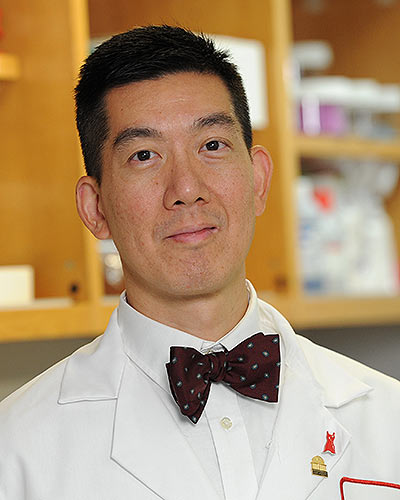
Wednesday, March 12, 2025
Meningococcal Vaccine Found to be Safe and Effective for Infants in Sub-Saharan Africa
University of Maryland School of Medicine (UMSOM) researchers helped conduct an important new global health study that found a vaccine that protects against five strains of meningitis prevalent in sub-Saharan Africa is safe and effective for use in young children beginning at 9 months of age. This study provided evidence that formed the basis for the World Health Organization’s (WHO) decision last year to recommend the pentavalent Men5CV meningitis vaccine for infants ages 9 months and older.
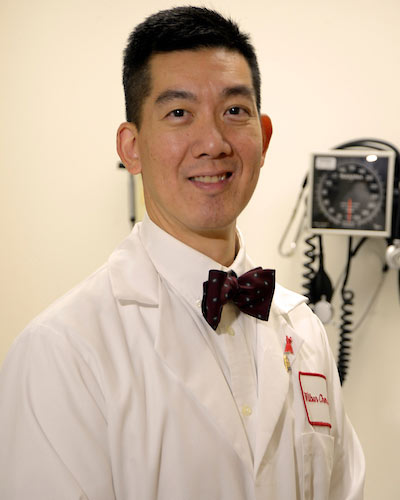
Monday, October 02, 2023
UM School of Medicine Researchers Present Interim Results on Meningococcal Vaccine for Infants and Young Children in Africa
University of Maryland School of Medicine (UMSOM) researchers, as part of the Infectious Diseases Clinical Research Consortium (IDCRC), provided an interim analysis showing that the pentavalent (NmCV-5) meningitis vaccine is safe for use in 9-month-old infants in the meningitis belt of sub-Saharan Africa. They presented their results to the World Health Organization’s (WHO) Strategic Advisory Group of Experts (SAGE) on Immunization on September 26.
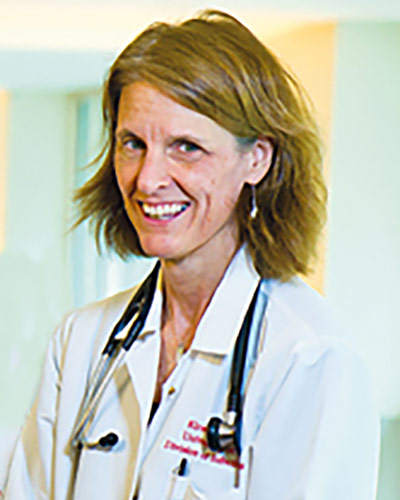
Wednesday, January 26, 2022
Trial Co-led by University of Maryland School of Medicine Scientist Confirms Safety of “Mix-and-Match” COVID-19 Vaccine Booster Dosing
A University of Maryland School of Medicine (UMSOM), Center for Vaccine Development and Global Health (CVD), expert is co-leading an ongoing study that was pivotal in recommending adults and teens receive booster COVID-19 shots of their choosing starting in fall 2021. The preliminary clinical trial results, reported today in The New England Journal of Medicine, found that is safe and effective to receive boosters that are the same or a different one from the person’s primary vaccine(s).

Wednesday, January 27, 2021
Dr. Wilbur Chen, Nationally-Recognized Vaccine Researcher, Selected for Federal Committee that Guides Immunization Policies
Wilbur H. Chen, MD, MS, FIDSA, FACP, Professor of Medicine at the University of Maryland School of Medicine (UMSOM), has been named a new voting member of the federal government’s Advisory Committee on Immunization Practices (ACIP), the prestigious board of experts that makes recommendations on the safe use of vaccines for Americans. The U.S. Department of Health and Human Services selected Dr. Chen for the 15-member advisory committee based on his expertise and national leadership in vaccinology, infectious diseases, public health, and preventive medicine. He will remain in his current role at UMSOM while he serves in his four-year term, which began last month.
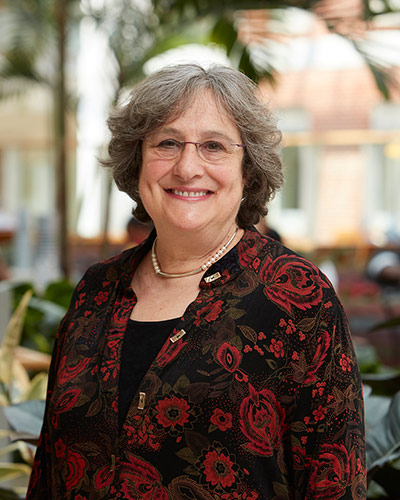
Thursday, April 23, 2020
UM School of Medicine Researchers Test Remdesivir as Potential Therapy for COVID-19 Patients
Researchers at the University of Maryland School of Medicine (UMSOM) are testing the effectiveness of the investigational antiviral drug remdesivir in hospitalized adult patients with SARS-CoV-2 (COVID-19). The randomized controlled clinical trial is evaluating the safety and effectiveness of the drug, and it is part of a national study funded by the National Institute of Allergy and Infectious Diseases (NIAID) of the National Institutes of Health (NIH).
